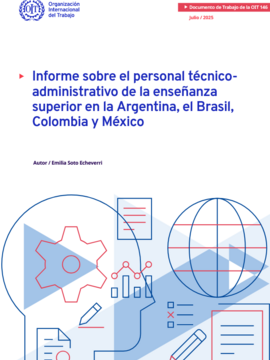
This publication represents the successful outcome of strategic initiatives by PSI, CONTUA, and FATUM, who have been championing this cause since the 2018 ILO Global Dialogue Forum on the Conditions of Employment of Higher Education Personnel.
The report examines the working conditions of technical and administrative staff in higher education, addressing crucial issues including:
General overview of higher education systems in each country
Worker demographics and characteristics in both public and private universities
Gender gaps in the sector
Access to benefits, pensions, and paid leave
Occupational health and safety concerns
Vocational training opportunities
Union associations and collective bargaining frameworks
This achievement didn't come easily. PSI first secured participation in the 2018 Global Dialogue Forum after significant effort, placing special emphasis on the university education support sector. For years afterward, PSI persistently lobbied SECTOR/ILO to ensure this critical research was conducted.
Many PSI affiliates contributed directly to this research, working alongside researchers to provide comprehensive data and ensure accurate representation of the sector.
Looking forward, this report serves as more than just documentation—it's a strategic tool for future advocacy. With the ILO Governing Body's recent approval to update the Joint Recommendations of 1966 and 1984, this study provides crucial leverage to ensure the non-teaching sector is properly included and that PSI maintains its leadership role in the process.
DISCLAIMER
The report was originally published in Spanish only. The English version on this page was generated using an AI translation tool.
This publication is a translation of a copyrighted work of the International Labour Organization (ILO). This translation has not been produced, reviewed or approved by the ILO and should not be considered an official ILO translation. The ILO disclaims all responsibility regarding its content or accuracy. Responsibility lies exclusively with the author or authors of the translation.